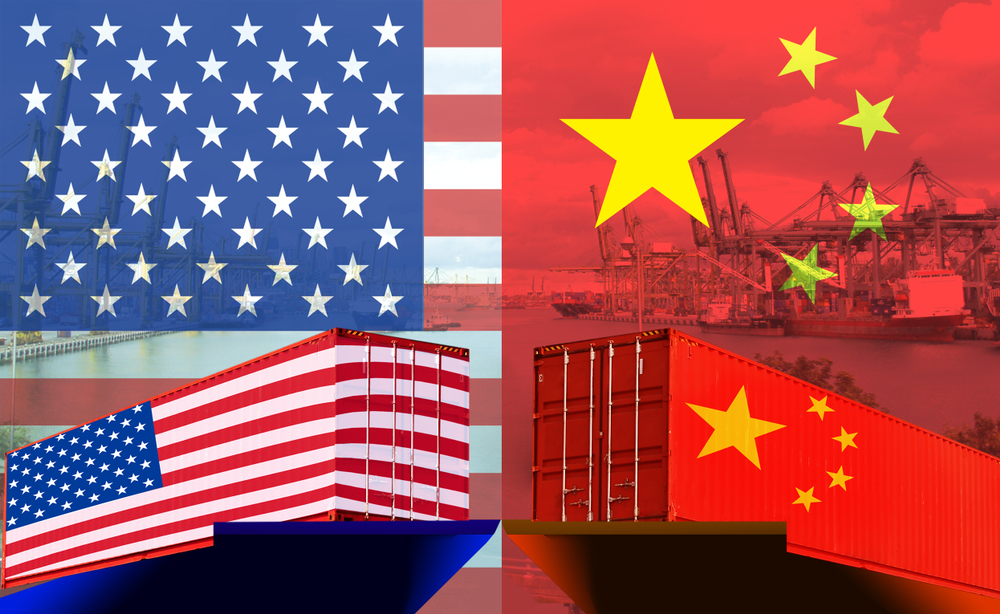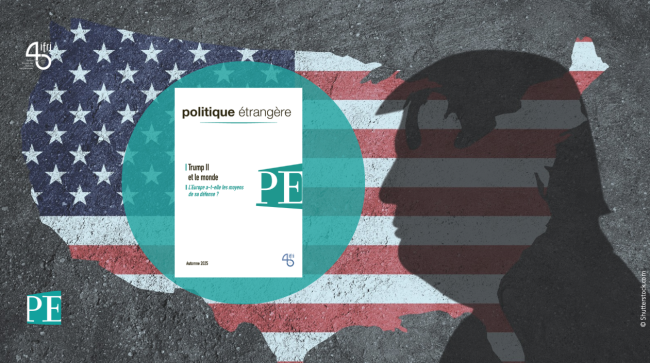The US-China Trade War: What Is the Outcome after the Trump Presidency?

One of Donald Trump’s campaign promises in 2016 was to end China’s “cheating” on trade and to reduce America's trade deficit by imposing significant tariffs on U.S. imports of Chinese products. This study draws up a first assessment of his policy - and of the "trade war" which stemmed from it.

The practices denounced by Trump – currency manipulation, forced transfers of technology, intellectual property violations, market access restrictions – are directly in line with the criticisms voiced by Americans (and Europeans) these past twenty years. The “trade war”, which culminated in 2018 and 2019, is therefore less a paradigm shift than a change in method. By unilaterally imposing massive tariffs, this administration has departed from the traditional American approach favoring multilateral mechanisms and limited use of targeted tariffs.
How does this trade war play into the technological and strategic competition opposing China and the United States? What are the consequences of the 2018-2019 tariffs escalation on the U.S.’s and China’s economies? How will it impact the multilateral trading order? Following the “Phase One” deal signed in January 2020, what future prospects for the China-U.S. relation?
This content is available in French : La guerre commerciale sino-américaine : Quel bilan à l'issue de la présidence Trump ?
Download the full analysis
This page contains only a summary of our work. If you would like to have access to all the information from our research on the subject, you can download the full version in PDF format.
The US-China Trade War: What Is the Outcome after the Trump Presidency?
Related centers and programs
Discover our other research centers and programsFind out more
Discover all our analysesBrazil One Year Away from the October 2026 General Elections
Brazil’s general elections will be held on October 4, 2026, to elect the president, vice-president, members of the National Congress, governors, deputy governors and state legislative assemblies. For the presidential and gubernatorial elections, a second round will be held on October 25 if no candidate obtains a majority of the votes in the first round.
Trump II: The Clash of Ideologies
The second Trump administration brings together a number of very different, even opposing, ideologies: far-right populism, the reactionary Christian right, paleolibertarianism, and technolibertarianism. The most visible measures taken since Donald Trump's return to the White House have been populist in nature, with the president's authority strengthened, checks and balances weakened, a form of identity politics embraced, and economic nationalism implemented.
Water in Mexico: an Emergency that Will Wait
Access to water is already and will become increasingly problematic for Mexican economic actors due to the progressive scarcity of the resource resulting from climate change, a geographical distribution that does not coincide with that of the population or economic activity, and management that has so far been far too lax.
Donald Trump v. the States: the Case of New York
While the disruptive policies of the second Trump administration are being implemented at the federal level and on the international stage, they are also being felt in the federal states and major cities across the country. In the spring of 2025, several cases involving the state and city of New York demonstrate that the president’s attacks on environmental protection, the separation of powers, freedom of speech, etc., are also being carried out at the local level.












